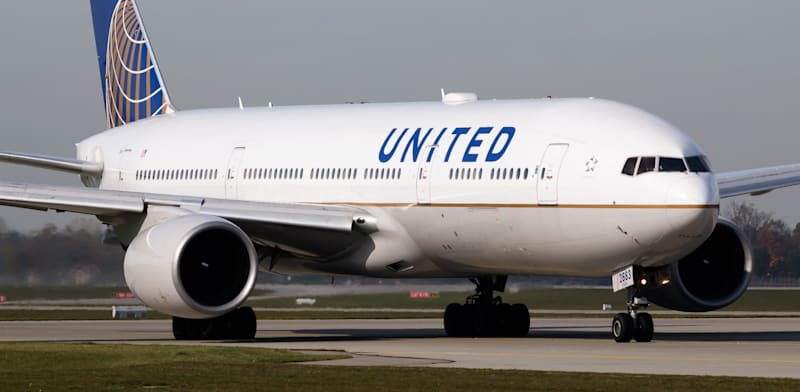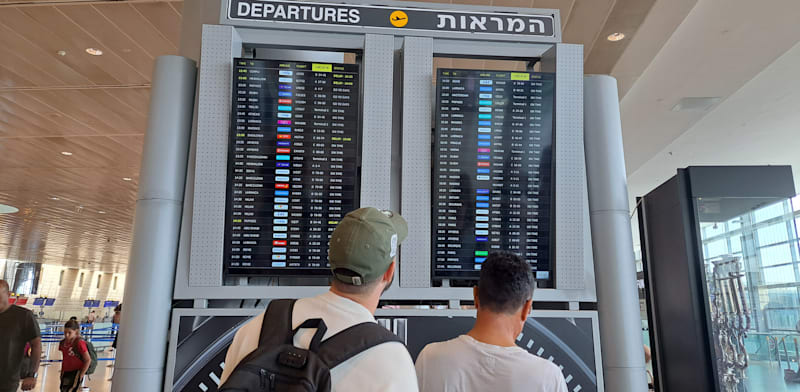Since October 7 Israeli have learned that foreign airlines cannot be taken for granted and even now it remains unclear what Israel’s aviation sector will look like even after the Houthis stop firing missiles, especially on Israel – North America routes.
US carrier United Airlines announced last week that it will resume flying to Israel on July 21. This is a vote of confidence in Israel after the airline initially planned returning at the start of August.
Delta Airlines remains steadfast in not returning until September 1 and is unlikely to bring that date forward, having already diverted planes to other routes and sold most of the tickets, Ministry of Transport sources say, although returning earlier is still a possibility.
On the other hand, American Airlines, which operated flights to Israel before the war, has yet to announce a return date and resuming flights to Tel Aviv does not seem to be in its plans. No flights can be booked on the airline’s website for the next year.
As of April 2025, the last month in which both Delta and United operated flights to Israel, 1.8% of passengers at Ben Gurion airport flew with United, which had resumed flights in March, and 0.78% flew with Delta, and together they carried 50,000 passengers to the US in April.
The addition of two US airlines on the high-demand route to New York is critical for Israeli passengers, on a route that has been dominated by El Al and Arkia. However, the additional flights and the partial return of United still do not come close to restoring the volume of direct flights to the US to pre-war levels.
Last summer, 97 weekly flights were operated between Israel and the US by four airlines – United, Delta, American and El Al – flying together to nine different destinations across the US. United alone operated 28 weekly flights, while El Al led with 42 flights to six destinations.
Today, El Al is the most dominant company on the route, with 52 weekly flights, of which about 30 are to New York, the rest to eight other destinations. Arkia and United will operate flights to New York only, and starting in September, if Delta returns, it is unlikely to resume flights to destinations other than New York.
This means that in August, the peak period for demand, there will be 26 fewer weekly flights compared with the pre-war level, and also passengers who need to get to Los Angeles or Boston will have to travel via New York, or on a direct El Al flight.
RELATED ARTICLES
Return fares in August won’t fall below $1,600
To understand how United’s return might affect fares, “Globes” compared prices for the first week of July 2024 with the same week in July 2025.
With the absence of the American airlines, the fare increase on direct routes to New York was particularly pronounced. While last year a basic round-trip ticket could be purchased on United and Delta for less than $1,400, this year the airline offering the lowest fare is El Al, with starting fares of $1,611 – a high price compared to its rivals last year, but lower than Arkia’s this year, which has soared to over $2,200.
However, United has now opened tickets for sale for flights that had not been available for months. Since the company originally planned to resume operations only in August, tickets for this period were already available in the past and were gradually sold out.
In contrast, the tickets for the flights that will now be added following the early return are brand new – and therefore are sold at introductory pricing, and not at “last minute” prices that characterize limited availability. As a result, it is still possible to find individual tickets for a limited time window for the end of July at prices of about $1,200-1,300. In August, prices are already returning to higher levels (according to the pricing method in the industry).
The bottom line: The presence of American companies is critical to lowering ticket prices. The high prices of Israeli companies reflect the enormous demand, which outweighs supply.
Since the outbreak of the war, American Airlines has taken a particularly cautious approach to its operations in Israel, preferring to give advance notice of long-term cancellations. As operators of routes to long-haul destinations, US carriers need to plan ahead and have high operational certainty.
During the first year of the war, Delta was the most loyal US airline to the Israeli route, and resumed flights at a relatively early stage. However, in the past six months, United has taken the lead by being the first to return after flights were suspended, signaling continued trust in Israel.
Even so, American Airlines is careful to return only after there has been a lull in security tensions, which can last for weeks or months.
US airlines must also provide overnight accommodation for flight crews in Israel – due to the length of the route, which requires rest time. This demand, along with a critical attitude towards Israel by some US labor organizations, has made continuing operations in Israel even more sensitive. The bottom line: US airlines need certainty to return and remain.
Published by Globes, Israel business news – en.globes.co.il – on July 15, 2025.
© Copyright of Globes Publisher Itonut (1983) Ltd., 2025.







